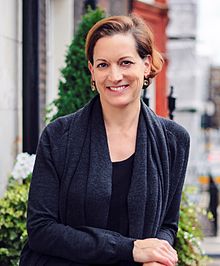
Aleksandr Isayevich Solzhenitsyn was a Russian writer and prominent Soviet dissident who helped to raise global awareness of political repression in the Soviet Union, especially the Gulag prison system.

The Gulag was a system of forced labor camps in the Soviet Union. The word Gulag originally referred only to the division of the Soviet secret police that was in charge of running the forced labor camps from the 1930s to the early 1950s during Joseph Stalin's rule, but in English literature the term is popularly used for the system of forced labor throughout the Soviet era. The abbreviation GULAG (ГУЛАГ) stands for "Гла́вное Управле́ние исправи́тельно-трудовы́х ЛАГере́й", but the full official name of the agency changed several times.
Memorial is an international human rights organisation, founded in Russia during the fall of the Soviet Union to study and examine the human rights violations and other crimes committed under Joseph Stalin's reign. Subsequently, it expanded the scope of its research to cover the entire Soviet period.
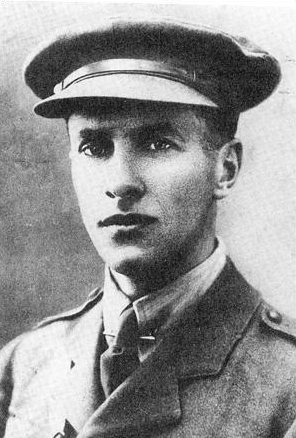
Walter Duranty was an Anglo-American journalist who served as Moscow bureau chief of The New York Times for fourteen years (1922–1936) following the Bolshevik victory in the Russian Civil War (1917–1923).

Radosław Tomasz "Radek" Sikorski is a Polish politician, journalist and statesman who has served as Minister of Foreign Affairs of Poland in Donald Tusk's cabinet since 2023, previously holding the office between 2007 and 2014. He was a Member of the European Parliament between 2019 and 2023. Earlier he was Marshal of the Sejm from 2014 to 2015. He previously served as Deputy Minister of National Defence (1992) in Jan Olszewski's cabinet, Deputy Minister of Foreign Affairs (1998–2001) in Jerzy Buzek's cabinet and Minister of National Defence (2005–2007) in the cabinets of Kazimierz Marcinkiewicz and Jarosław Kaczyński.
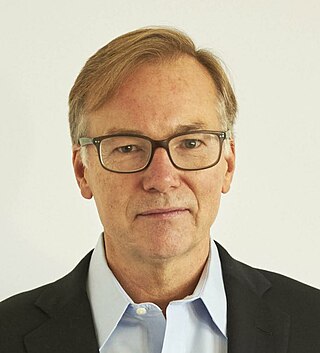
Steve Coll is an American journalist, academic, and executive.
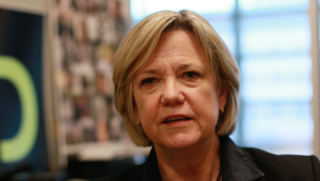
Dana Louise Priest is an American journalist, writer and teacher. She has worked for nearly 30 years for the Washington Post and became the third John S. and James L. Knight Chair in Public Affairs Journalism at the University of Maryland's Philip Merrill College of Journalism in 2014. Before becoming a full-time investigative reporter at the Post, Priest specialized in intelligence reporting and wrote many articles on the U.S. "War on terror" and was the newspaper's Pentagon correspondent. In 2006 she won the Pulitzer Prize for Beat Reporting citing "her persistent, painstaking reports on secret "black site" prisons and other controversial features of the government's counter-terrorism campaign." The Washington Post won the 2008 Pulitzer Prize for Public Service, citing the work of reporters Priest and Anne Hull and photographer Michel du Cille "exposing mistreatment of wounded veterans at Walter Reed Hospital, evoking a national outcry and producing reforms by federal officials."

Timothy David Snyder is an American historian specializing in the history of Central and Eastern Europe, the Soviet Union, and the Holocaust. He is the Richard C. Levin Professor of History at Yale University and a permanent fellow at the Institute for Human Sciences in Vienna.
The Lionel Gelber Prize is a literary award for English non-fiction books on foreign policy. Founded in 1989 by Canadian diplomat Lionel Gelber, the prize awards "the world’s best non-fiction book in English on foreign affairs that seeks to deepen public debate on significant international issues." A prize of CA$50,000 is awarded to the winner. The award is presented annually by the Munk School of Global Affairs and Public Policy at the University of Toronto.

Infidel is a 2006 autobiography of Ayaan Hirsi Ali, a Somali-Dutch activist and politician. Hirsi Ali has attracted controversy and death threats were made against Ali in the early 2000s over the publication of the book.

The Soviet famine of 1930–1933 was a famine in the major grain-producing areas of the Soviet Union, including Ukraine and different parts of Russia, including Kazakhstan, Northern Caucasus, Kuban Region, Volga Region, the South Urals, and West Siberia. Major causes include: the forced collectivization of agriculture as a part of the First Five-Year Plan and forced grain procurement from farmers. These factors in conjunction with a massive investment in heavy industry decreased the agricultural workforce. Estimates conclude that 5.7 to 8.7 million people died of hunger across the Soviet Union.

Holodomor denial is the claim that the Holodomor, a 1932–33 man-made famine that killed millions in Soviet Ukraine, did not occur or diminishing its scale and significance.

Gulag: A History, also published as Gulag: A History of the Soviet Camps, is a non-fiction book covering the history of the Soviet Gulag system. It was written by American author Anne Applebaum and published in 2003 by Doubleday. Gulag won the 2004 Pulitzer Prize for General Non-Fiction and the 2004 Duff Cooper Prize. It was also nominated for the National Book Critics Circle prize and for the National Book Award.
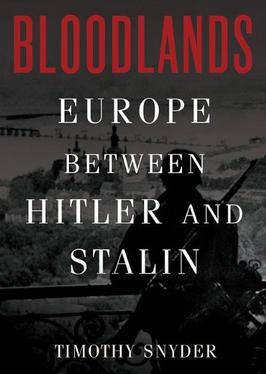
Bloodlands: Europe Between Hitler and Stalin is a 2010 book by Yale historian Timothy Snyder. It is about mass murders committed before and during World War II in territories controlled by Nazi Germany and the Soviet Union.

The Kazakh famine of 1930–1933, also known as the Asharshylyk, was a famine during which approximately 1.5 million people died in the Kazakh Autonomous Socialist Soviet Republic, then part of the Russian Socialist Federative Soviet Republic in the Soviet Union, of whom 1.3 million were ethnic Kazakhs. An estimated 38 to 42 percent of all Kazakhs died, the highest percentage of any ethnic group killed by the Soviet famine of 1930–1933. Other research estimates that as many as 2.3 million died. A committee created by the Kazakhstan parliament chaired by Historian Manash Kozybayev concluded that the famine was "a manifestation of the politics of genocide", with 1.75 million victims.

Estimates of the number of deaths attributable to the Soviet revolutionary and dictator Joseph Stalin vary widely. The scholarly consensus affirms that archival materials declassified in 1991 contain irrefutable data far superior to sources used prior to 1991, such as statements from emigres and other informants.
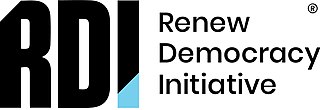
The Renew Democracy Initiative (RDI) is a non-partisan organization committed to identifying and combating threats to freedom in the U.S. and around the world. Although based on a moderate political perspective, its leadership consists of individuals from a variety of ideological backgrounds and it has published content spanning the political spectrum. It was founded in 2017 by former World Chess Champion and Russian dissident Garry Kasparov, and its board is made up of people ranging from center-left to center-right including Senators Heidi Heitkamp and Bob Kerrey, Pulitzer Prize-winners Bret Stephens and Anne Applebaum, Congressman Mickey Edwards, former RNC Chairman Michael Steele, and former World Poker Champion Annie Duke, among others.
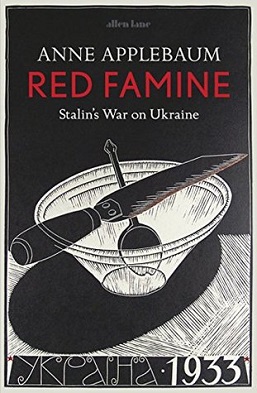
Red Famine: Stalin's War on Ukraine is a 2017 non-fiction book by Anne Applebaum, focusing on the history of the Holodomor. The book won the Lionel Gelber Prize and the Duff Cooper Prize.

Nataliya Petrivna Gumenyuk is a Ukrainian journalist and author specializing in foreign affairs and conflict reporting. She is a co-founder and CEO of the Public Interest Journalism Lab, and a co-founder of the independent media Hromadske. She is the author of several books, including The Lost Island: Tales from the Occupied Crimea (2020).
